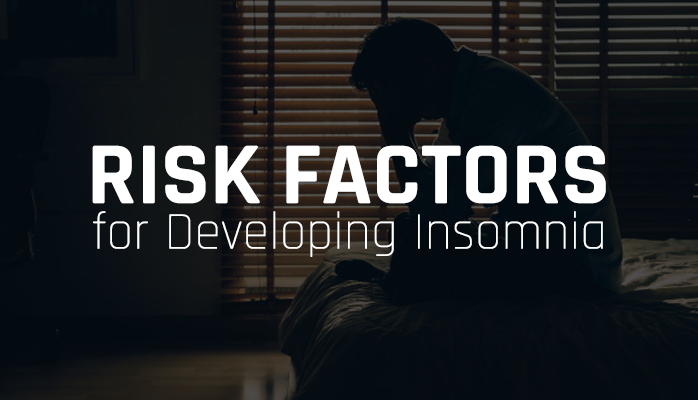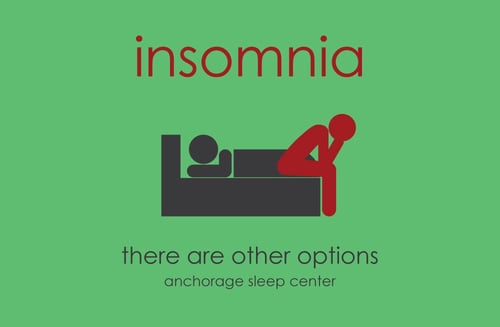What is a Risk Factor for Insomnia?
A risk factor is something that increases your likelihood of developing a disease or condition. Insomnia, like other sleep disorders, has a number of different potential causes and factors that can put you at risk for developing insomnia.
Complicating matters is the fact there are two types of insomnia:
- Primary insomnia – no clear, underlying cause.
- Secondary insomnia – due to an underlying or secondary cause.
Adding to this is that there are two modes of insomnia as well, which concerns how long insomnia lasts:
- Acute insomnia – short-term, a month or less
- Chronic insomnia – symptomatic, long-term (at least three times per week for a month or more)
Types of Insomnia
Here is a bit more information about the types of insomnia:
Secondary insomnia occurs when your inability to sleep is a direct result or symptom of another underlying factor, such as a health condition, medication, pain, or substance abuse. For instance, depression can serve as a contributing cause for insomnia.
On the contrary, primary insomnia refers to the situation where your sleep troubles are not directly linked to any other underlying issue.
While these distinctions are typically clear-cut, it is important to acknowledge that the line between primary and secondary insomnia can sometimes blur. For instance, when both insomnia and depression coexist, it raises the question of which condition manifested first.
So, there are a total of four different types of insomnia:
- Secondary/acute insomnia – temporary insomnia in response to a temporary illness, stress, etc.
- Primary/acute insomnia – temporary insomnia for no discernible reason
- Secondary/chronic insomnia – chronic insomnia, normally caused by chronic life problem such as pain, illness, etc.
- Primary/chronic insomnia – chronic insomnia with no discernible cause
With these in mind, here are primary risk factors for insomnia:
Risk Factors for Insomnia
Age Risk Factors for Insomnia
With age, sleep cycles change and older individuals find themselves going to bed and waking up much earlier than before, often requiring naps throughout the day to supplement their sleep. Due to these changes, people over the age of 60-65 are more likely to have insomnia and report sleep difficulties.
Aside from natural changes to sleep patterns, other change are due to lifestyle impacts, such as medication changes.
Disease Risk Factors for Insomnia
Many diseases can affect sleep, and increase the risk for developing insomnia:
- Diabetes
- Kidney disease
- Lung disease
- Arthritis
- Heart disease
- Heavy smoking
- Sleep apnea
- Restless leg syndrome (RLS)
- Addiction
- Parkinson’s disease
- Alzheimer’s disease
- Mental disease
Medication Risk Factors for Insomnia
Certain medications cause insomnia (primary) as a side effect, and include:
- Diet pills
- Steroids
- High blood pressure medications
- Theophylline
- Phenytoin
- Levadopa
- Decongestants
Gender Risk Factors for Insomnia
Insomnia is more common in women than men. Biological differences in women, like pregnancy, premenstrual syndrome, and menopause, can increase the risk for developing insomnia.
Psychological Risk Factors for Insomnia
Psychological factors are some of the most common root factors for developing primary insomnia, and include:
- Depression
- Anxiety
- Stress from marriage/job/health issues
Lifestyle Factors for Insomnia
Lastly, insomnia is also commonly caused by lifestyle choices that make sleep difficult, such as:
- Shift work
- Poor pre-sleep habits (screens, diet)
- Drinking before bed
- Drinking too much coffee
- Jet lag
- Poor sleep environment – noisy, bright, distractions, etc.
- Exercising close to bedtime
If you live in Alaska and are worried that you are struggling with insomnia, please contact one of our sleep specialists by clicking the orange button below to take a free online sleep test.



